The Anxious Runner
Sometimes I feel like my legs running like mad match the thoughts, emotions, and worries swirling around in my head. I certainly resonate with comments like “Running is my therapy,” as I know many of you do as well! The anxious runner is one way to describe my struggle. This article will outline my triggers, how running can help, and ways running does not help as I pursue positive mental health.
For the past several years my anxiety has mostly been under control (if such a thing is possible). The unfortunate state of it all is that I know how to find serenity. I’ve learned from my 12 step program (to recover from anxiety) that insanity is “doing the same thing over and over, expecting different results.” I stepped out of denial and moved into serenity for many years, but alas, this relapse has humbled me again.
Can you relate? I know some can because I’ve listened to and loved enough people to hear about it. I was compelled to write this article because of the responses I received from the post below.
Disclaimer: Please seek medical help if you need it. It’s not a weakness, it’s a strength to seek help. I am not a medical professional, just a life-long learner and warrior against anxiety.
What things can trigger anxiety?
Do you feel it?
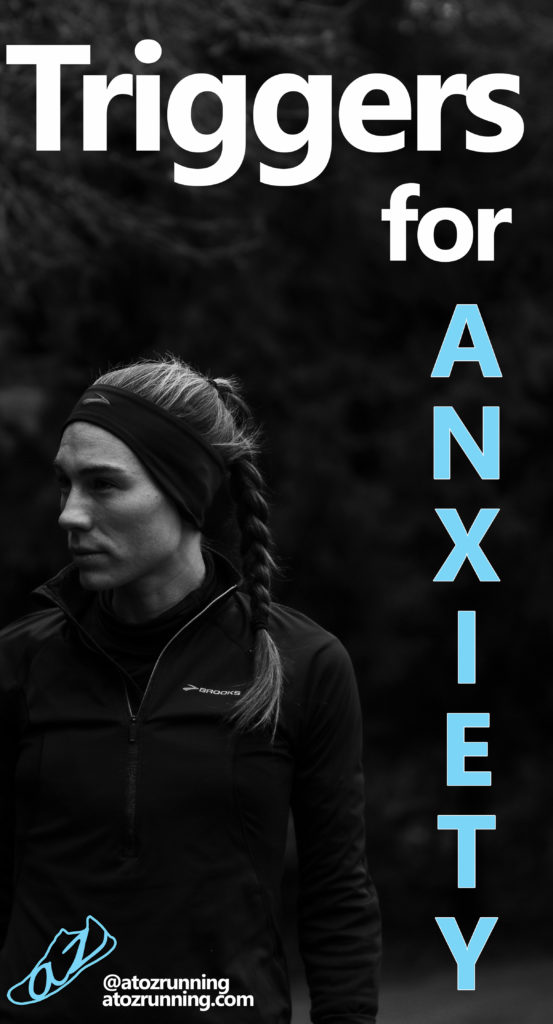
- Lack of sleep
- Nutritional or hydrational deficiency
- Little structure, or the opposite…. little freedom within a highly structured environment
- Unmanageable schedule
- Feelings of inadequacy to complete life’s demands
- Goals, or the opposite… lack of purpose
- Relational pressure (received or given)
- Major life events: death, divorce, marriage, career change, retirement, graduation, financial crisis, etc.
- Skipped quiet time
- Unmet expectations both internal and external
- Guilt and shame
- Illness (oneself or a loved one)
When a even just a handful of triggers come barreling toward me, I find that it takes an exceptional amount of awareness and energy to not get hit with anxiety.
Identifying triggers is an excellent way to avoid major episodes of anxiety. If I would have taken the time, I would have identified many on this list. Take a minute to think about your triggers. They are not always the same person to person, and if you have thoughts to add to my list, post a comment below.
What can running do to help with anxiety?
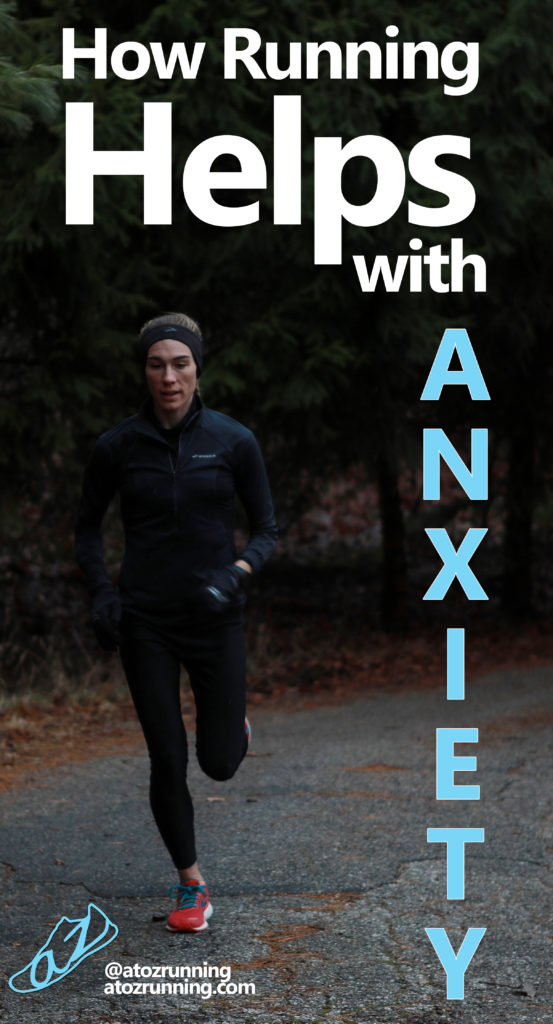
I often manage my anxious tendencies with running. There are many helpful reasons for an anxious runner to go for a run.
Time alone. Time to process. Time to meditate and pray. For some of us this is just about the only alone time we get in our lives.
Alleviate symptoms. According to the Anxiety and Depression Association of America, “One vigorous exercise session can help alleviate symptoms for hours, and a regular schedule may significantly reduce them over time.”
Trained to cope. The article mentioned above suggests that those who exercise may be able to cope better with the symptoms of anxiety in general. I would imagine that teaching ourselves to push through discomfort, run when we don’t want to, and reach the finish line while collapsing in complete exhaustion would help us with our mental stamina, right?
What running cannot do to help with anxiety?
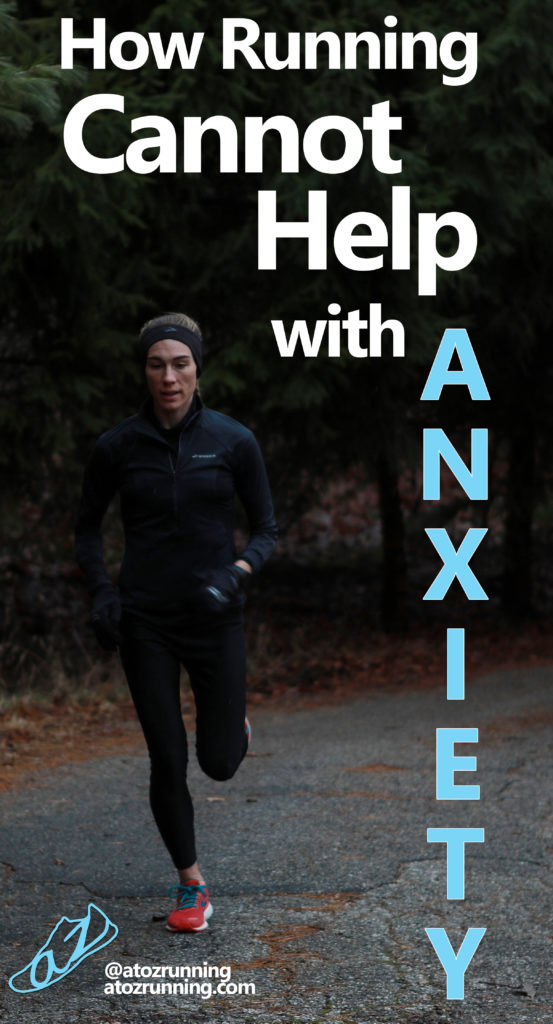
Running is a beautiful and wonderful remedy, but it is not the cure-all for everyone. I have misused running as I have sought to “medicate” myself solely on the sport.
There are some things running cannot do:
- Running does not produce complete restoration of chemical imbalances for those who need medication.
- Running does not provide complete control over our lives (and might even create an illusion of control that inevitably breaks down).
- Running can feed anxiety by elevating our obsession with running goals, figures, and social success.
- Running does not tell us who we are at the core of our being. If running were taken away from us, we would still be a whole human.
- Running takes us within ourselves, while a real therapist outside our head helps us to gain health and perspective that we are not able to see for ourselves.
I reflect a little more on this topic in, Running in the Raw: The Truth about My Running. As I recover from this relapse, I am taking time to walk through my stumbling blocks, evaluate my needs, and seek to grow healthy as I move forward.
Thanks to many of you who have reached out since I’ve shared about my anxiety. I feel encouraged, supported, and empowered to take on the battle for this new day. I hope I can be some encouragement to you as well.
We talk a lot about training, running science, and race advice on AtoZrunning, but we also talk about the real stuff of life that intersects with the life of the athlete. Join the journey. That’s why we say, “Live life. Run.”

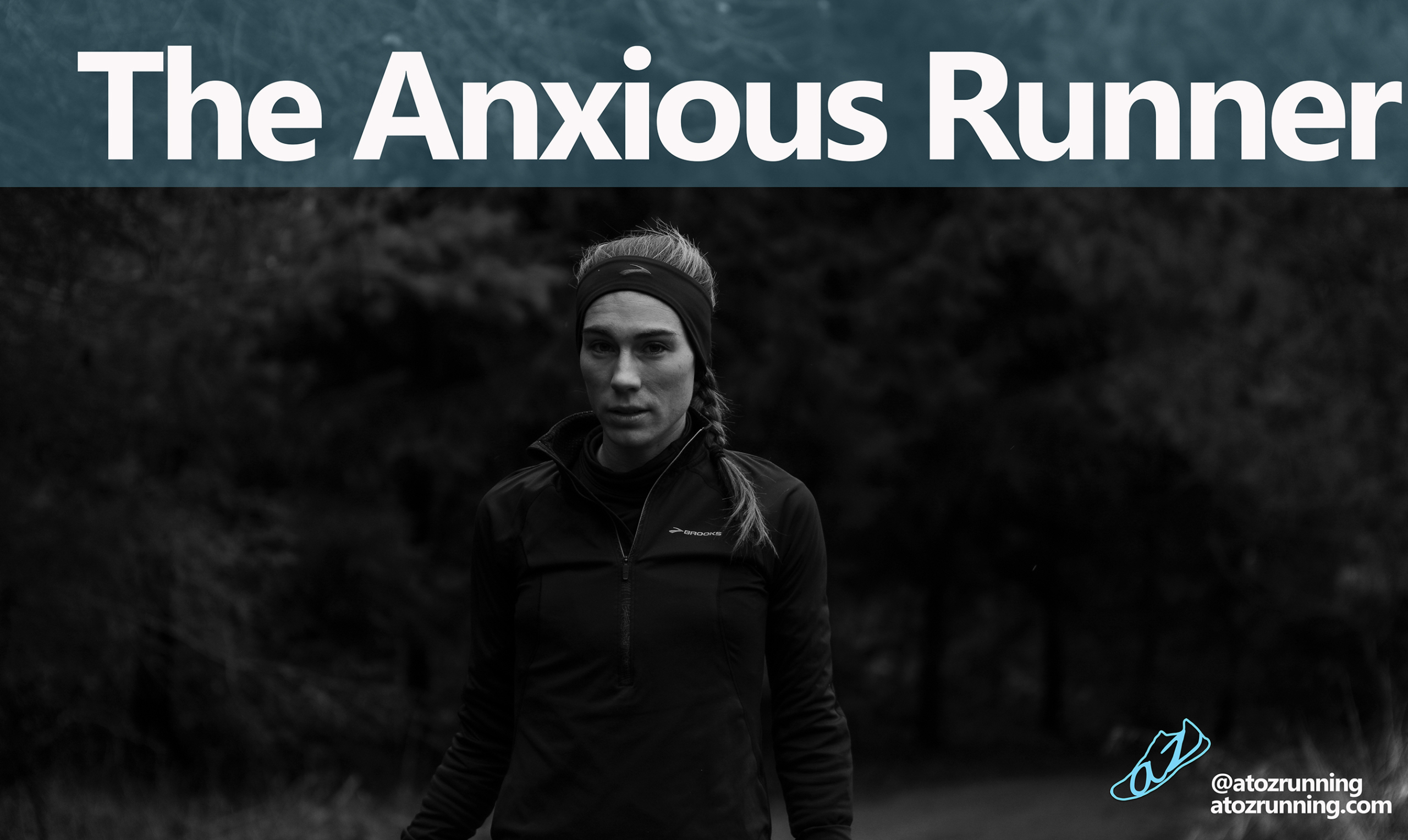
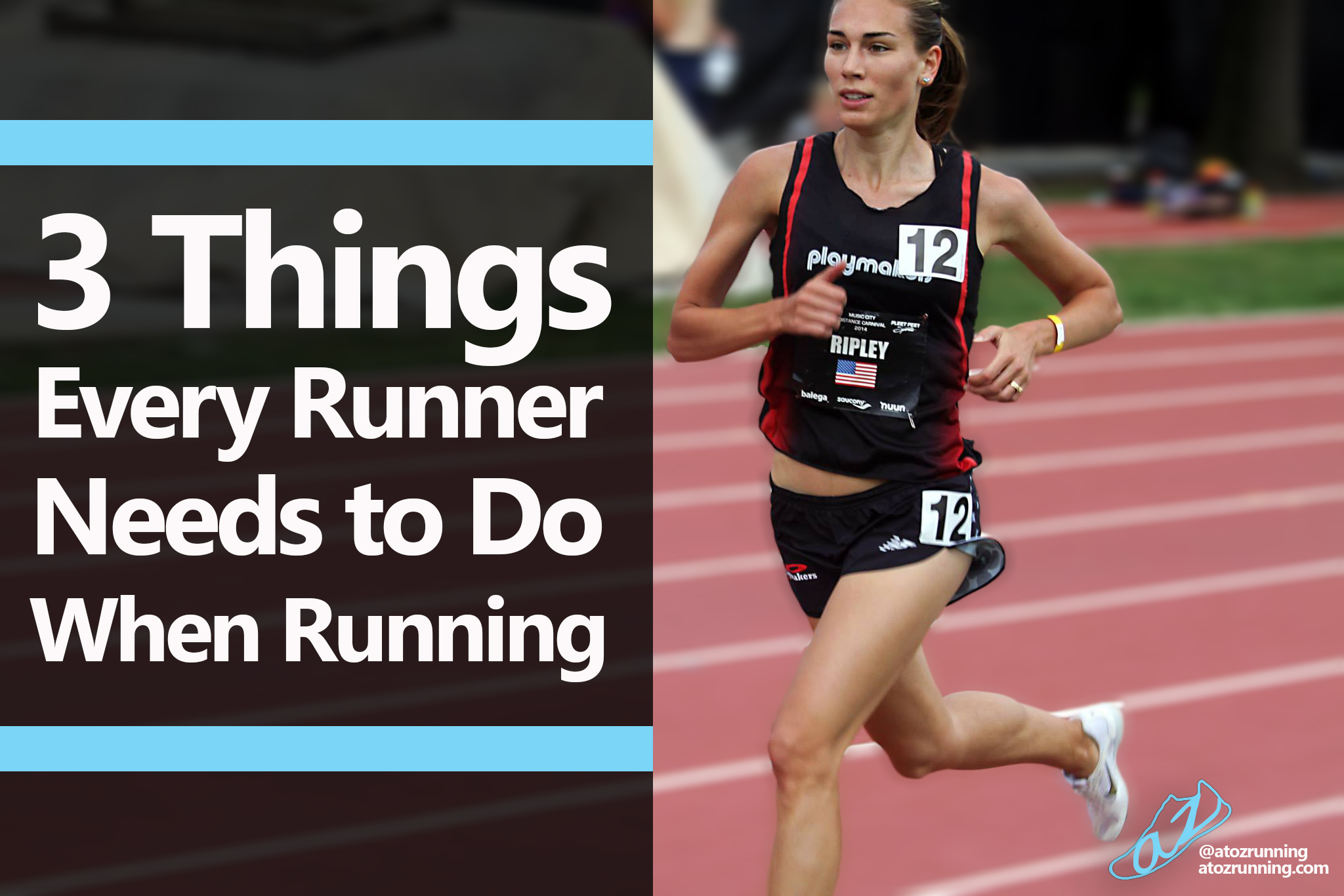
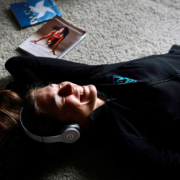
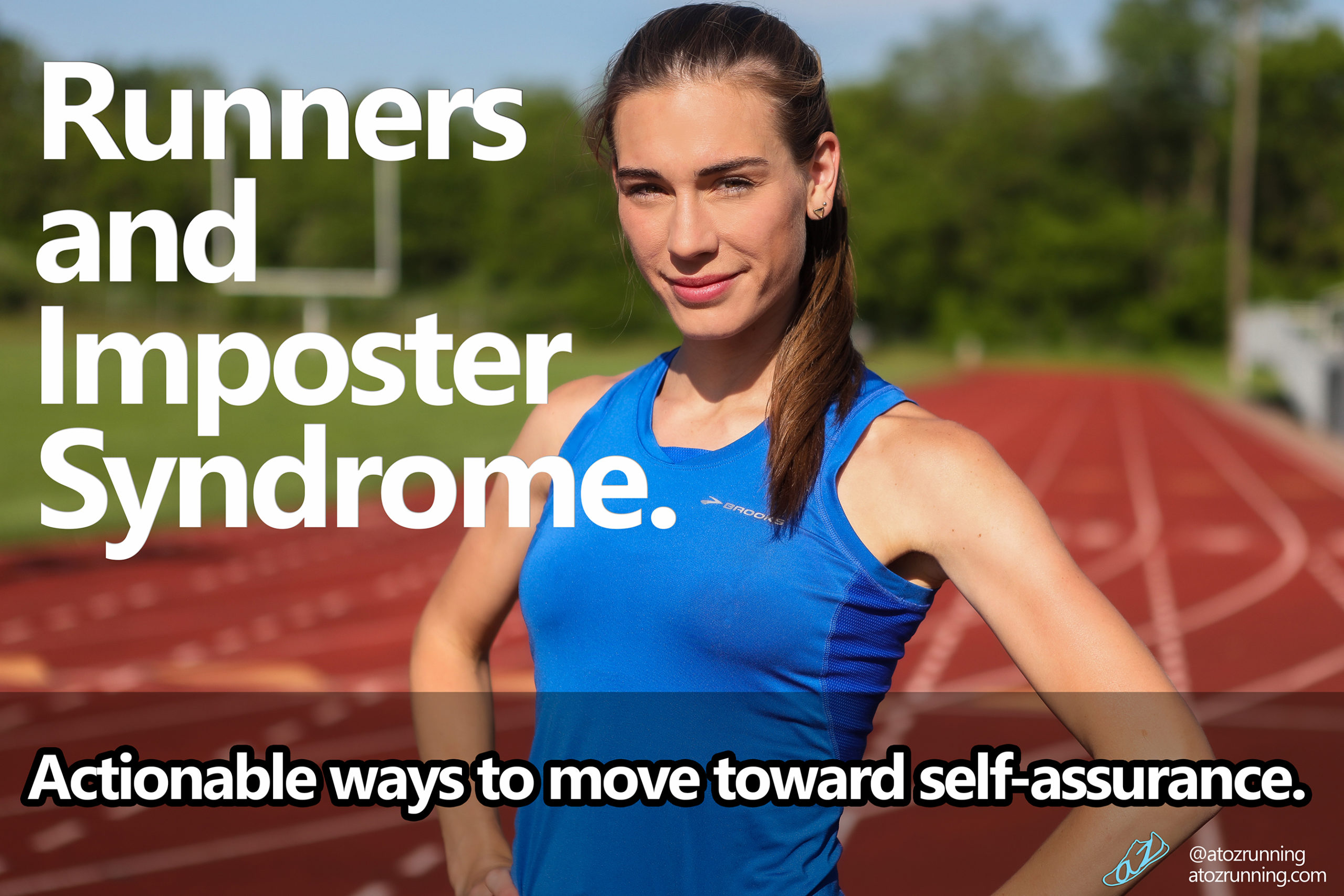

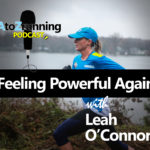
I love what you said about training to cope, alleviating symptoms and time alone. One of the key reasons exercise helps me psychologically is that the athletic posture tells my mind that I’m strong and confident. I think you guys mentioned the power of posture in your podcast with Hodge!
Thank you for sharing your wisdom from traveling the road. It’s applicable to everyone.
Great article. Thank you for sharing your wisdom! Love you! ?
Thanks for standing, sitting, and walking with me in it.
Love you Andi and your willingness to be open and real about this. I imagine that your February goal is not helping your anxiety right now. I know for me, when I have a specific race coming up, running becomes a chore for a while. I don’t do well with “have to” runs, and they almost create more anxiety if those don’t go as I’d wished.
I hope you’re able to get a handle on this relapse. If not, I’m available to meet, to listen, and to pray.
Remember who you are in Christ!
Thank you, Lynne! You are a treasure.